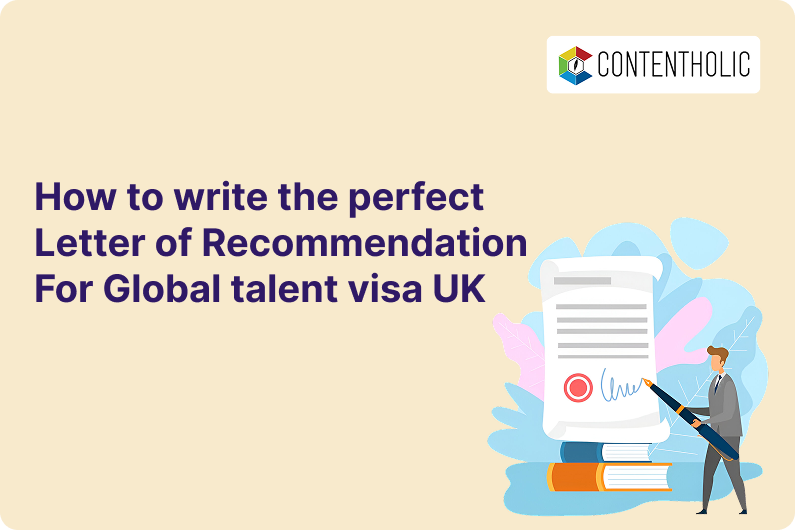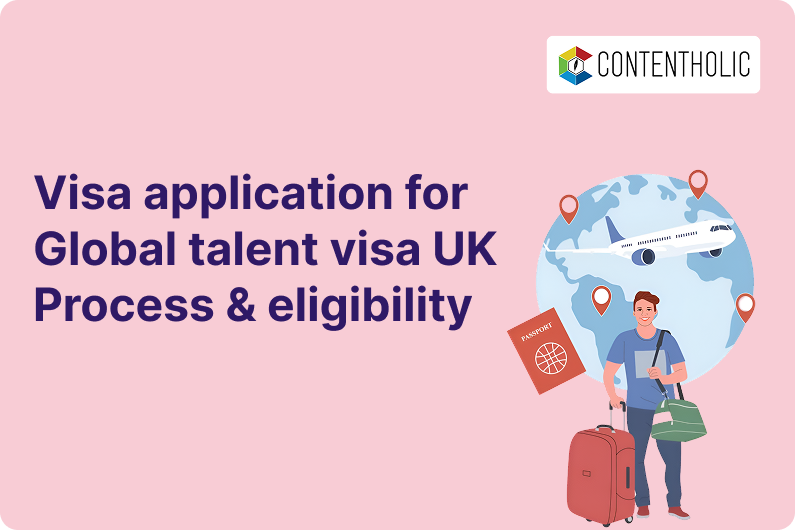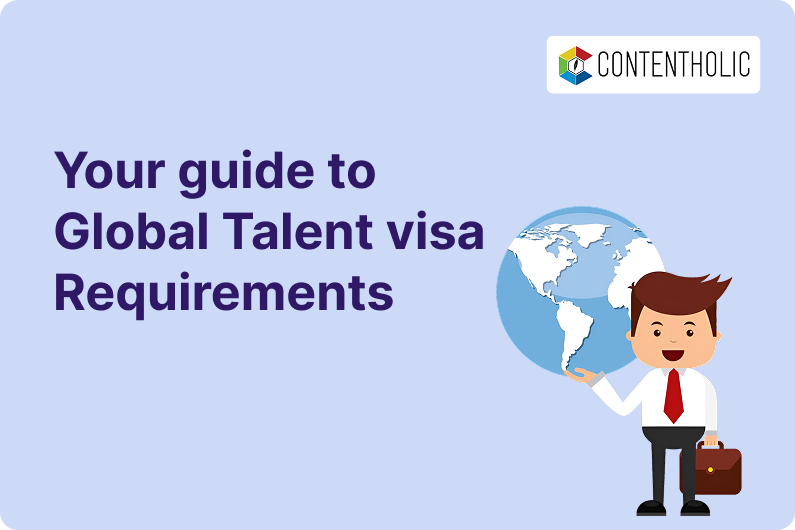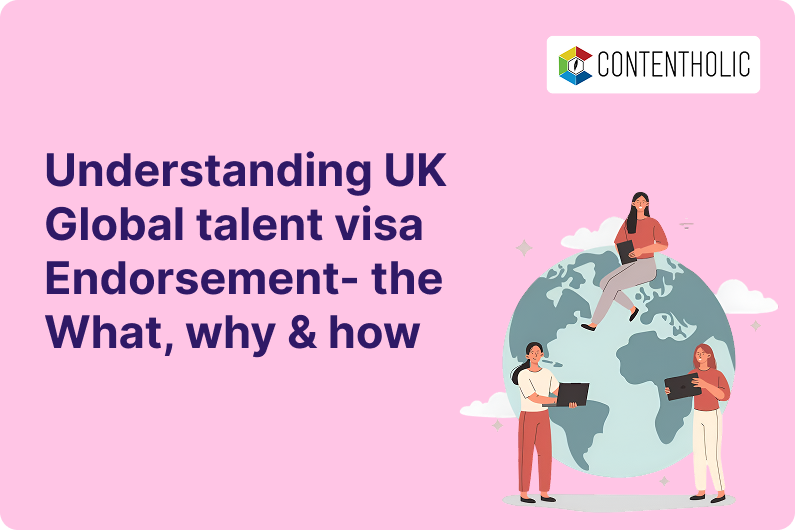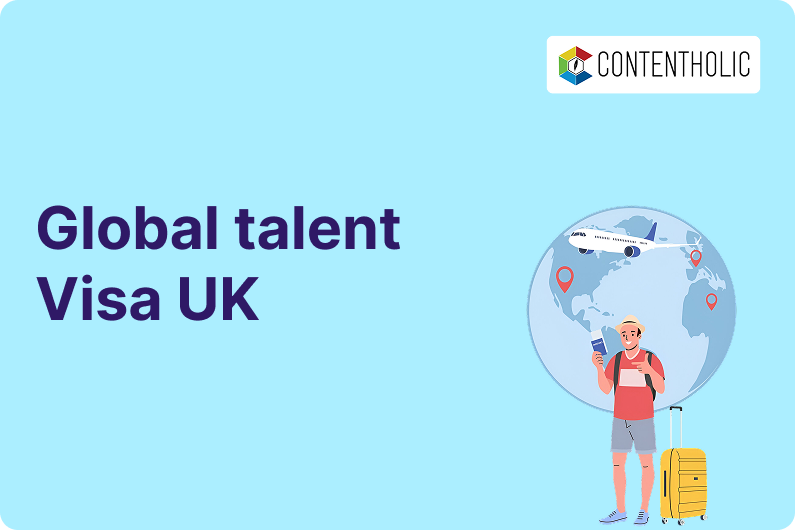In today’s competitive world of academics and the constant movement of people from one country to another, some important documents help people achieve their goals. The Statement of Purpose (SOP) is one such document that helps people fulfill their dreams of studying at their desired university or moving to their preferred country. An SOP allows people to express their motivations behind their actions, in academics, it would be about the choice of program and university, and in visa, it would be the reason to move to another country. With the advent of new technologies that aim to make our lives more efficient and save time, a significant question arises: Are AI-written SOPs better than those crafted by Humans? In this blog, we will explore both options and understand how professional SOP writing services like Contentholic fit into this dynamic.
What is an SOP?
Before we go into the comparison of AI and the human mind, it is important to know what is an SOP and why is it so important. An SOP is a personal narrative that tells the officials why a particular applicant is pursuing a specific program or going to a particular country. It generally outlines the applicant’s academic/professional or personal background, motivations, and future goals. For many institutions, employers, or visa officials, the SOP is critical in evaluating an applicant, making it very important to get it right.
Why Applicants Have Started Using AI in SOP Writing?
There is no denying that AI has transformed many fields and the art of writing has not escaped this technological revolution either. AI text-generating platforms like ChatGPT can generate stories, essays, and whatnot with just a few prompts given by the user, giving rise to SOPs written by AI. While AI platforms are convenient, save time, and do not cost anything, there are more limitations than advantages which makes human-written SOPs a much effective choice. If an applicant wants an SOP that truly captures their uniqueness, dreams, and motivations, nothing can replace an SOP written through human expertise.
Constraints of AI-written SOPs
While the constant development in AI technology has led to strides in AI’s ability to generate natural language, it still is limited in realms where human emotions and personal voice have to shine such as a compelling SOP.
No To Negligible Personal Connection: Although AI produces structural and grammatically correct sentences, they lack that emotion which makes us connect with a person whenever we read something personal. The authorities seek personal experiences and individual voices from applicants’ SOPs. An SOP should highlight an applicant’s story of their journey towards whatever they seek, their values, and potential contributions. AI-generated content always misses these points, as it is written by a bot and cannot capture the authenticity of human emotions that resonate with readers.
Common Content and No Originality: AI does not have the power to make content on its own. It relies on existing patterns and large data sets which leads to the generation of an SOP that will look like written for a general mass and not for one individual. It may seem that it has been designed based on some common formula and has no specifics but it’s just a general statement. There is a risk of repetition and absence of creativity which will lead to an SOP being impersonal and similar to other applicants, with a missed opportunity to showcase an applicant’s perspective.
Limited Understanding of Context: AI often fails to comprehend the context of an individual’s SOP. As a consequence, it often struggles to grasp the subtle nuances of a human’s life story, it can be some cultural references, academic or industry-specific languages, and personal motivating force. This leads to written material that does not align with the applicant’s intended tone or fails to convey their true motivations and aspirations effectively.
Challenges in Editing: Although AI can generate a draft within a few seconds, but then a significant time and effort of the applicant might be utilized in aligning that SOP with the requirements and intentions of the applicant. The time saved up in making the first draft of the SOP through AI will then be offset by the time taken in the revision process. Ultimately, the efficiency of AI which was its advantage, will be reduced because an applicant will still need to make a lot of changes.
Why Is It Better to Choose Human-written SOPs?
In contrast to AI, an individual or professional SOP writer will bring to the table personalization and insights in the whole process of SOP creation, just what the officials seek. Human writing, especially from those who have experience in SOP writing, can add significant enhancements to the SOP which an AI cannot replicate.
Genuine Reasons and Life Story: Only a human can craft an SOP that could highlight an applicant’s unique background, goals, and personality. Professional SOP writers, in their process, engage in direct conversation with the applicant, to understand and incorporate firsthand anecdotes and inclinations, developing an SOP that feels legitimate and memorable.
Research and Tailoring: Human writers, be the applicants or professional writers will always research information that they are going to use in their writing. The writing for an SOP has to be according to the specific requirements of a program, university, job, or country. They know what the officials are looking for and can tailor the writing content and style accordingly, thus increasing the prospects of a favorable outcome. This targeted approach helps the applicants be exceptional and situate themselves with the values or requisites of an institution, company, or country.
Emotional Connection: Only an SOP written by a human can have the power to convey emotion, motivation, and passion in ways that can make the reader form a genuine interest in the applicant’s story. By highlighting achievements, challenges, and future visions the SOP not only becomes informative but meaningful and impactful as well. This emotional connection between us humans is what is lacking in an AI, and therefore, in the content generated by it.
Assurance of Quality and Easy to Edit: When somebody writes anything, they often know which information seems more important. Taking the help of professional writers will also give comprehensive feedback, which ensures that the SOP is clear, concise, and refined. This level of content is important for making a lasting impression on the officials and is something that does not come under the bandwidth of AI without the involvement of humans in the editing process.
Some Applicant’s Might Choose the Middle Ground
While human-written SOPs provide unmatched personal flair and in-depth narrative, some applicants might still choose AI’s content with human expertise. Applicants often use AI to make a rough draft and then work on it to refine it. This process might give a quick start, but ultimately it’s the human touch that will reflect the voice and personal story of the applicant.
Human Touch Is All That Matters
AI might give a quick response and save time, but it always falls short when it comes to the originality and personal voice that human writers offer to the SOP content. Applicants thinking about using AI for SOP writing should weigh the significance of an SOP which reflects their unique story, particularly if they have any distinctive experiences or qualities which they wish to give spotlight.
Professional writers, like those at specialized services such as Contentholic , are known for their expert ability to capture an applicant’s personal narrative in a way that would be persuasive for the officials, making the SOP one of the most influential documents in the application process.
Conclusion
When deciding between whether to choose AI or human-written SOP, applicants must consider what is most important to them, and the significance of well-crafted SOP in achieving their goals. AI might be cost-effective and time-saving, but human writers bring some of the important qualities such as personal voice and emotional depth to the writing that make the difference in the application process. If your priority is to demonstrate a compelling, original, and impactful narrative, then the human touch cannot be replaced and will make your SOP stand out from the rest of the applicants. The assurance that the written content is the reflection of your true self and aspirations is the ultimate goal of an SOP.


